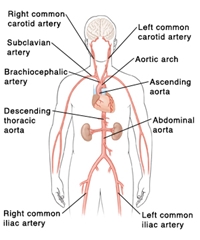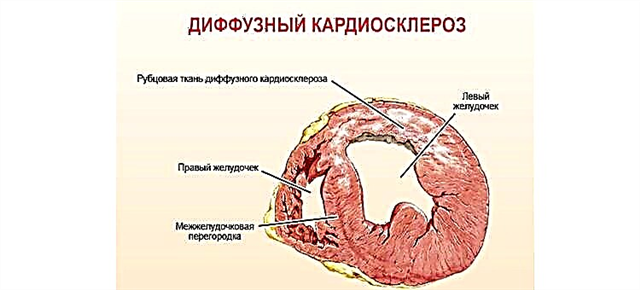Often, aphonia occurs against the background of infectious inflammation of the larynx and adjacent anatomical structures, hormonal disorders, trauma, mucosal burns, mental disorders and malfunctions of the peripheral and central nervous system.
Only a phoniatrist after examining the patient can determine the true reason for the absence of phonation.
The mechanism of the origin of the voice
What is Aphonia? To answer this question, you need to understand the general principles of voice formation. The voice is called the sound vibrations that occur when air passes through the closed ligaments. The entire process of sound formation is controlled by the corresponding parts of the brain, from where nerve impulses come to the muscles that regulate the degree of tension of the vocal folds in the larynx.
Aphonia is a vocal disorder in which a person can speak only in a whisper.
The vocal cords (folds) are elastic formations that are located inside the larynx on the right and left sides. They consist of connective muscle tissue, which is innervated by the superior laryngeal and recurrent nerves. In the event that a person intends to speak, nerve impulses come from the cerebral cortex to the larynx, which "force" the vocal cords to stretch.
For the occurrence of sound vibrations, it is very important that during the passage of the air flow through the larynx, the ligaments close along their entire length. The lack of voicing in the voice and a significant narrowing of the sound range in most cases is associated with incomplete flushing of the ligaments, as a result of which the sound is very quiet or "squeezed".
Causes of aphonia
Loss of voice is an alarming symptom that may indicate the development of serious pathologies. In some cases, a temporary absence of phonation occurs due to nerves or due to overstrain of the vocal cords. People of voice-speech professions very often face a similar problem - teachers, professors, radio presenters, theater actors, singers, etc.
The most likely causes of voice disorders include:
- infectious diseases - bronchitis, tracheitis, laryngotracheitis, rhinosinusitis, pharyngitis, laryngitis;
- tumors in the larynx - papillomas, fibromas, polyps, cysts, hemangiomas, lipomas;
- trauma - after tracheostomy, tracheal intubation, laryngoscopy;
- poisoning - chlorine, mercury, ammonia, nickel, fluorine;
- mental disorders - phobias, hysteria, panic attacks;
- violation of the innervation of the respiratory system - central and peripheral paresis of the larynx;
- endocrine diseases - hypothyroidism, adrenal dysfunction, toxic goiter.
Thus, aphonia can develop against the background of diseases that are not directly related to the voice-forming apparatus.
Sometimes the loss of voice is due to the manifestation of allergic reactions. Severe swelling of the mucous membranes of the airways prevents the vocal cords from closing, as a result of which the voice becomes hoarse and intermittent.
Quincke's edema is one of the most dangerous manifestations of allergies. Spasmodic cough often precedes stenosis of the pharynx and, as a result, acute asphyxia or suffocation.
Clinical picture
How does aphonia manifest? Depending on the cause of the problem, voice disorders develop either gradually or suddenly. Many patients, even before the complete loss of voice, complain of:
- narrowing of the audio range;
- hoarseness;
- changing the timbre of the voice;
- discomfort in the Adam's apple;
- laryngeal spasm.
If the voice suddenly disappeared, in 97% of cases this indicates the development of functional, i.e. short-term violations. As a rule, persistent speech pathology is preceded by degenerative changes in the tissues of the larynx, which cause pain, sore throat, malaise, etc.
Temporary voice disorders very often occur in patients who, with respiratory diseases, do not comply with the voice mode. With inflammation of the larynx, the vocal cords become very vulnerable. The slightest overvoltage can lead to partial or complete absence of phonation.
Do not panic if a child aged 13-14 has lost his voice. In puberty, hormonal changes in the body and a strong mutation of the voice occur, especially in boys.
Jumps in hormonal levels lead to hypotonia of the vocal cords, as a result of which adolescents sometimes experience a temporary loss of voice.
Symptoms of organic aphonia
 Organic aphonia is a voice disorder that occurs as a result of the development of somatic, in particular infectious diseases. With inflammation of the respiratory tract, damage to the neuromuscular system is observed, as a result of which voice disorders occur. The development of speech pathology may be evidenced by rapid fatigue in the absence of large voice loads, loss of normal sound, hoarseness and a change in timbre. With paralysis of the larynx, loss of voice often occurs suddenly, and the pathology can be accompanied by a spastic cough, respiratory distress and constant choking while eating.
Organic aphonia is a voice disorder that occurs as a result of the development of somatic, in particular infectious diseases. With inflammation of the respiratory tract, damage to the neuromuscular system is observed, as a result of which voice disorders occur. The development of speech pathology may be evidenced by rapid fatigue in the absence of large voice loads, loss of normal sound, hoarseness and a change in timbre. With paralysis of the larynx, loss of voice often occurs suddenly, and the pathology can be accompanied by a spastic cough, respiratory distress and constant choking while eating.
It should be noted that the discoordination of breathing significantly aggravates the patient's condition.
If the loss of voice is due to the development of malignant or benign tumors, the symptoms of pathology appear gradually as the neoplasms grow. During surgery, there is a risk of damage to the larynx and vocal cords, which can also affect the quality of phonation. But if the tumor is malignant, it may be necessary to completely remove the affected organ, in which a person is forever deprived of the opportunity to speak even in a whisper.
Symptoms of functional aphonia
Functional aphonia is a problem that people in “voice” professions face more often. Typical manifestations of speech pathologies include rapid fatigue of the voice, the inability to adjust the tone and volume of sounds, hoarseness, etc. In some cases, the voice may disappear completely, but after the course of rehabilitation and voice rest, phonation is restored in full.
Functional aphonia in most cases appears against the background of hysterical mutism and neurotic disorders.
As a result of paresis of the larynx, the so-called hypotonic dysphonia (voice disturbance) often develops, which is characterized by a decrease in the tone of the laryngeal muscles. The appearance of violations is evidenced by sore throat, hoarseness and rapid fatigability of the voice, in which a person can speak, but only in a whisper. If the absence of phonation was preceded by a coarsening of the voice, most likely, the speech pathology was provoked by a tonic spasm of the laryngeal muscles, which appears with hypertonic dysphonia.
Forms of aphonia
Partial impairment of strength, non-modulation and rapid fatigability of the voice are good reasons for seeking help from a finisher. In phoniatrics, it is customary to distinguish between several forms of voice disorders, which are determined by the cause of the development of aphonia:
- true - occurs when inflammation develops directly in the larynx, which negatively affects the work of the true vocal folds;
- spastic - due to spasm of the laryngeal muscles and, as a result, pathological narrowing of the glottis;
- paralytic - appears due to a violation of the conduction of the vagus nerves, which innervate the laryngeal muscles;
- functional - due to disruption of the work of the corresponding parts of the brain, prolonged crying, the development of chronic laryngitis, etc.
Chronic diseases of the ENT organs sometimes lead to irreversible changes in the structure of the vocal cords, which is fraught with a persistent lack of phonation.
Aphonia, which occurs due to the defeat of the recurrent or superior laryngeal nerve, requires surgical treatment. Untimely passage of therapy can cause nerve atrophy and, accordingly, the development of persistent speech pathology.
How to improve your well-being?
How to be treated if the voice is gone? To reduce the severity of sore throat and prevent complications, it is necessary to reduce the load on the vocal apparatus. Before contacting a phoniatrist, it is not recommended to talk, eat spicy food and smoke. To alleviate the condition, you must:
- consume alkaline drinks in large quantities (fruit drinks, warm milk, herbal teas);
- perform inhalations using saline or Essentuki 17;
- ventilate the room and humidify the air up to 60%;
- consume carrot juice 100 ml 3 times a day 20 minutes before meals;
- gargle with broths based on sage, oak bark, St. John's wort and birch buds.
You can not put alcohol compresses on the throat until the reasons for the development of aphonia are clarified, as this can lead to complications.
If your voice has disappeared due to a cold or any other infectious disease, compresses cannot be used. Heating the tissues will only provoke the reproduction of microbes, which can lead to the development of purulent-necrotic processes in the larynx.
General principles of treatment
Aphonia, which occurs against the background of paralysis of the laryngeal nerves, is practically not amenable to drug treatment. In all other cases, it is possible to eliminate voice disorders with the help of drugs, physiotherapy procedures and surgery.
There can be several treatment regimens, and they all depend on the causes of the violation of the voice function. Infectious diseases and, accordingly, inflammation in the larynx and vocal cords are eliminated with antibiotics, antiviral and anti-inflammatory drugs. Neoplasms in the airways are removed surgically, after which the patient is prescribed cytostatic drugs that inhibit the pathological growth of soft tissues.
If the absence of phonation is associated with mental disorders, sedatives, antipsychotics, antidepressants and other mood stabilizers are included in the drug therapy regimen. Without fail, patients must visit a specialist in order to acquire the skills to deal with stressful situations that negatively affect the work of not only the nervous system, but also the voice-forming apparatus.

 Often, aphonia occurs against the background of infectious inflammation of the larynx and adjacent anatomical structures, hormonal disorders, trauma, mucosal burns, mental disorders and malfunctions of the peripheral and central nervous system.
Often, aphonia occurs against the background of infectious inflammation of the larynx and adjacent anatomical structures, hormonal disorders, trauma, mucosal burns, mental disorders and malfunctions of the peripheral and central nervous system.

